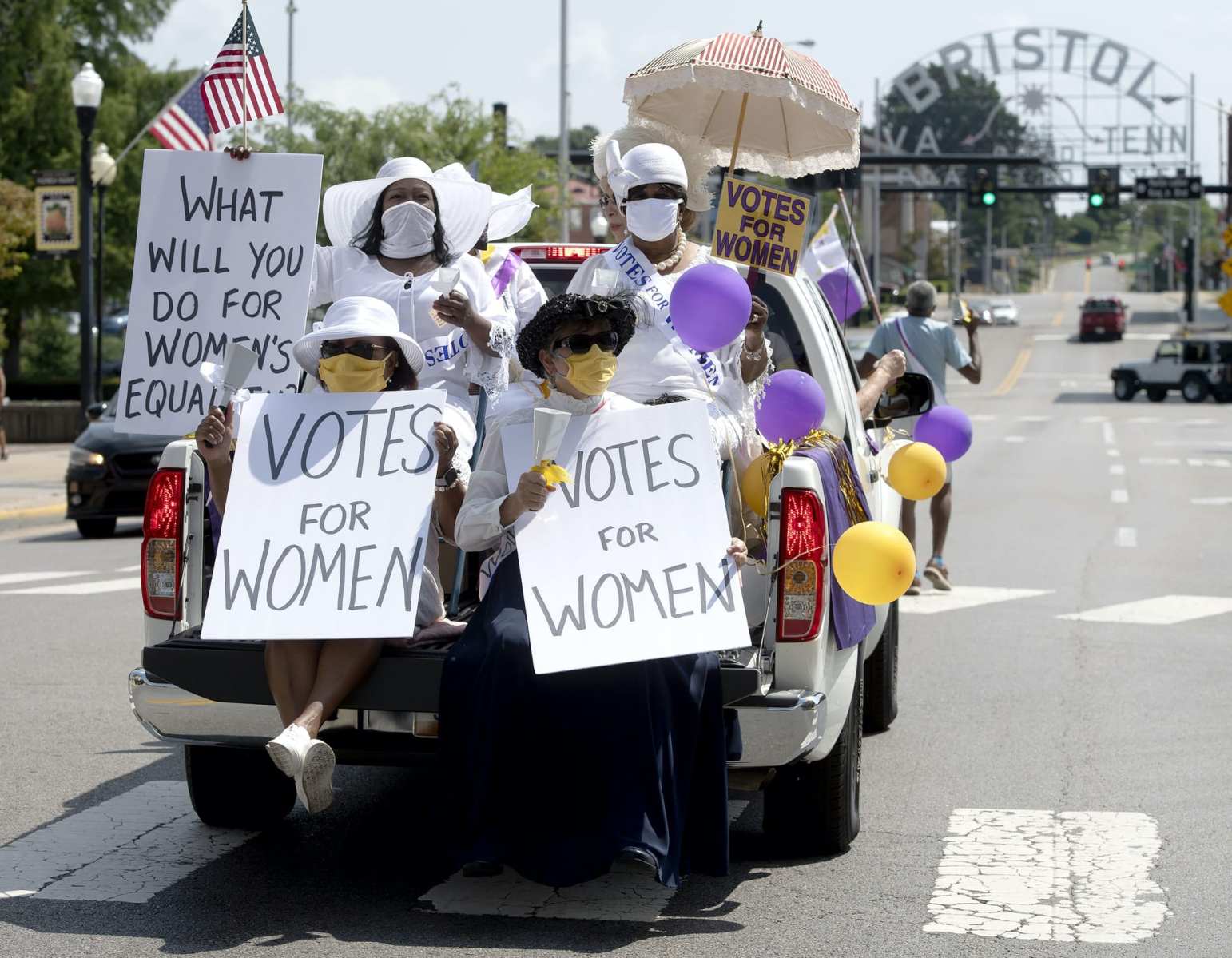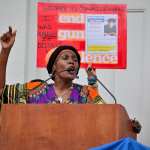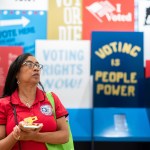More than 700,000 formerly incarcerated Floridians owe money to the courts — and now, following a 6-4 decision by an appeals court last week, they will not be able to vote in the 2020 presidential election unless they pay off the fees, which for some can be excessively high.
The case, which was the nation’s sole felony disenfranchisement lawsuit citing a 19th Amendment violation, argued that a Florida law requiring formerly incarcerated people to pay court fees and fines constituted a poll tax.
Earlier this year, a federal judge agreed. On Friday, the U.S. Court of Appeals for the 11th Circuit overturned the earlier ruling and declared the law constitutional.
“The reason these laws leave some felons disenfranchised — the justification for their continued disenfranchisement — is not their failure to pay a tax,” the appeals ruling reads. “It is instead Florida’s legitimate interest in restoring to the electorate only fully rehabilitated felons who have satisfied the demands of justice.”
Plaintiffs could appeal this decision to the U.S. Supreme Court, but have not yet finalized the decision.
In 2018, two-thirds of Floridians voted in favor of an amendment to restore voting rights to 1.5 million formerly incarcerated people. It was billed as the largest mass enfranchisement effort since the Voting Rights Act of 1965. The Republican-led state legislature responded with Senate Bill 7066, which said that restitution, fines, and court costs — referred to as legal financial obligations — must be paid before someone who’d served their prison time, including parole and other supervisory measures, could register to vote.
The law has been in the courts ever since.
In the appeal, Nancy Abudu, the deputy legal director for Southern Poverty Law Center (SPLC), brought a 19th Amendment claim on behalf of Rosemary McCoy and Sheila Singleton, two formerly incarcerated Black women who cannot pay their fees. McCoy owes about $7,500 in victim restitution, including interest; Singleton owes $12,000, including interest. Duval County, where they live, requires these fees to be paid all at once. Statewide, payment plans are left to the discretion of the counties, some of which tack on a 40 percent collections fee to unpaid court debt.
SPLC argues that harsh economic realities — Black women are more likely to live in poverty, make less money than their white counterparts, and are less likely to get a job when they have a criminal record — will disproportionately deny voting rights to women like McCoy and Singleton.
“When you talk about the ability to pay these fines, if you are a woman already making less money, if you are Black and already discriminated against, and if you are poor and don’t even have real access, then of course this requirement is going to have a disparate impact on low-income women of color,” Abudu told The 19th in August.
Abudu said Friday’s decision was completely contrary to the “words and spirit” of the constitution.
“The poll tax we have challenged — and will continue to challenge — especially burdens Floridians who are low-income people of color, especially women who statistically earn less than men with or without a criminal conviction,” Abudu said in a statement. “Floridians like our clients Rosemary McCoy and Sheila Singleton will be shut out of the democratic process this November simply because they lack the thousands of dollars they owe in [legal financial obligations] in order to vote. There is no rehabilitative goal that can be accomplished by denying the franchise to people solely based on their economic status.”
The portion of the appeal court’s ruling that mentions the 19th Amendment is mainly a debate in semantics, and the appeals court majority does not believe the 24th Amendment’s outlawing of taxes “by reason of” failure to pay a tax equates to the 19th and 15th Amendment protecting the right to vote “on account of” sex and race, respectively.
Over the past year, five felony disenfranchisement cases, including McCoy and Singleton’s, have been consolidated into Jones v. Florida, which won a favorable ruling from U.S. District Judge Robert Hinkle in May.
Florida Gov. Rick DeSantis’ legal team kept pushing, achieving a temporary injunction of Hinkle’s decision, which blocked formerly incarcerated people who owe money from voting in this summer’s primaries, despite plaintiffs’ last-ditch effort to get the U.S. Supreme Court to intervene.
On August 18, the governor’s efforts culminated in a rare en banc, or full court hearing by the 11th Circuit, on the same day as Florida’s primary elections and the centennial of the 19th Amendment. Friday’s ruling put an end to this fight, but plaintiffs still have lingering questions.
In Hinkle’s May decision to overturn the “pay-to-vote system,” he said it would take until 2026 for Florida to find out which citizens owe money and how much they owe. In the meantime, this “uncertainty” would deny almost a quarter million Floridians access to the franchise — unless they want to risk more prison time. Plaintiffs took issue with the fact that the 11th Circuit appeals court never denied that the system of telling formerly incarcerated people the amount they owe creates an “administrative nightmare.”
Then, there is the appeals court itself.
In July, voting rights attorneys, including Abudu, requested that Judges Robert Luck, Barbara Lagoa and Andrew Brasher be disqualified from ruling on Jones v. Florida based on their past involvement in voting rights cases. Brasher was the only among them to recuse himself, following up on his promise to step down from any case involving a government policy he previously defended. As former solicitor general of Alabama, he worked on the Thompson v. Alabama case, another felony voting rights case.
Luck and Lagoa declined to recuse themselves. During their confirmation hearings to become federal appeals judges, Luck and Lagoa, former Florida Supreme Court justices, stated in writing to the Senate Judiciary Committee their promises to recuse themselves from any case involving the Florida Supreme Court during their tenure. In September 2019, the Florida Supreme Court weighed in on defining legal financial obligations at DeSantis’ request. Luck and Lagoa heard oral arguments on the matter before being confirmed to the 11th Circuit in November 2019.
Luck and Lagoa denied the recusal motion themselves in July, pointing out, in part, that the state supreme court’s review was not at issue in this case and that neither of them were still members of that court when it issued the advisory opinion on voting fees to DeSantis this January.
Had Luck and Lagoa stepped down, the remaining justices would’ve been deadlocked, leaving the lower court ruling in place and allowing defendants like McCoy and Singleton to vote.
Brasher, Luck and Lagoa were appointed under President Donald Trump, who’s appointed more federal appeals court judges to date than any recent president at the same point in their presidency, according to the Pew Research Center.





